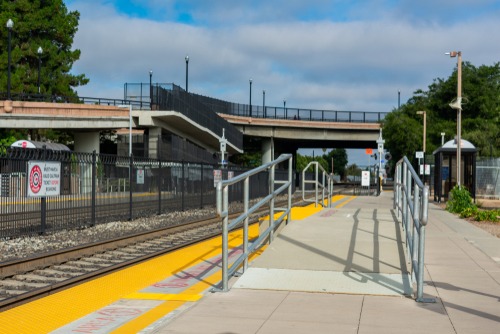
Legislation recently introduced in the U.S. Senate would help make public transportation systems more accessible to passengers with disabilities.
The All Stations Accessibility Program (ASAP) Act of 2021 would create a federal grant program, authorized to receive $1 billion annually, that would assist legacy transit and commuter rail authorities with upgrading existing rapid rail and commuter rail stations to meet or exceed accessibility standards under the Americans with Disabilities Act (ADA).
In 2019, nearly 20 percent of all transit stations were not ADA accessible, according to the Federal Transit Administration.
The bill was introduced by U.S. Sens. Sherrod Brown (D-OH), chairman of the Senate Committee on Banking, Housing and Urban Affairs; Bob Casey (D-PA), chairman of the Senate Special Committee on Aging; and Tammy Duckworth (D-IL).
“Building back better means improving existing resources and systems that aren’t meeting the needs of all Americans,” Brown said. “There’s no reason that 100% of our transit systems shouldn’t meet or exceed ADA standards, and I’m proud to introduce legislation that will get us there.”
U.S. Reps. Jesús “Chuy” García (D-IL) and Marie Newman (D-IL) introduced companion legislation in the U.S. House of Representatives.
The Greater Cleveland Regional Transit Authority estimates it would take approximately $23 million to complete accessibility upgrades to its 17 remaining stops and stations that are not ADA compliant.